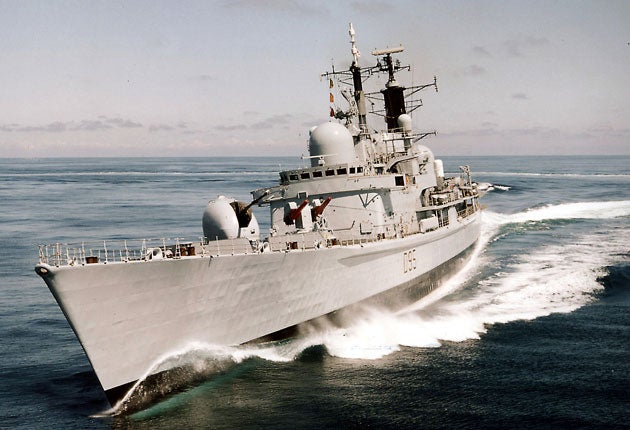Cocaine traffickers using submarines in attempt to supply European users

Drug traffickers are increasingly using sophisticated submarines to transport their illicit cargo in the supply chain from Latin America to Britain and Europe, senior Royal Navy officers said yesterday.
Wealthy crime cartels based in Colombia are taking recourse to the underwater craft in an attempt to counter the rising number of naval patrols in the Caribbean. The "narco-submarines" carrying cocaine sail from South to North America and islands in the Caribbean for shipment to Western Europe. Investigators say the size and range of the vessels have grown in recent times and some have been crossing the Atlantic to West Africa as an alternative route to the lucrative European markets.
The political dimensions of the narcotics trade have been highlighted by the fighting in Jamaica, where attempts by security forces to arrest suspected drug lord Christopher "Dudus" Coke, wanted in the US, triggered a virtual insurgency, while the US has accused one of the leading figures behind the recent coup in the West African state of Guinea, Rear Admiral Jose Americo Bubo Na Tchuto, of being a leading narcotics trafficker.
A British task force in the Caribbean, led by HMS Manchester, expects to come across more submarines in the coming months. Rear Admiral Mark Anderson, the Navy's commander of operations, said: "We are starting to see them, as they face this very effective multi-agency response, using increasingly more exotic means to get their drug traffic through. We are starting to see the use of submarines on the west coast of the peninsula [the west coast of America]. The expectation is that if they are successful there they will start to use those more exotic means in other passages.
"They now have their own submarines and submersibles or boats that have a very low above-water profile – just pretty much the wheelhouse, and the rest of the boat is under water. There are a few that are now making the run across to West Africa."
The smuggling organisations have put together a fleet of different types of vessels. "The hugely profitable business means that they can afford to buy an extraordinary variety of expensive equipment," said Rear Admiral Anderson. "They have invested in all modes of transport – some really impressive 'go fast' small boats."
HMS Manchester, a Type 42 destroyer, is equipped with a state-of-the-art sonar system which, it is claimed, will be able to track the narco-submarines. However, at present her primary role is to provide assistance to Britain's overseas territories during the hurricane season. The Ministry of Defence does not directly fund counter-narcotics operations and the ship's role in these is the by-product of being in the area. Rear Admiral Anderson said the issue should be addressed in the forthcoming Strategic Defence Review.
According to naval estimates, around 1,400 tonnes of cocaine were moved by sea last year, with up to 30 tonnes being shipped, on average, across the Atlantic every day. A 1kg brick of cocaine is worth around $2,300 (£1,600) in the Colombian capital Bogota, $ 20,000 in the streets of Miami and $60,000 in London, going up to $150,000 in Jeddah and Riyadh in Saudi Arabia and Kuwait City. International drugs cartels, say Royal Navy sources, have an available fund of around $50bn – about the same size as the UK's defence budget.
